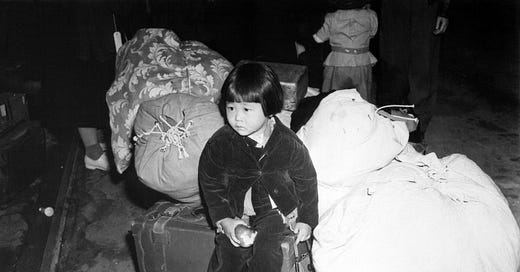some things happened in America that we are not so proud of
Sue Kunitomi Embrey, Chiye Mori and Yuki Okinaga Llewellyn

“Manzanar” means “apple.” That’s how the Manzanar War Relocation Center got its name.
When 10,000-plus Japanese Americans were imprisoned there between 1942 and 1945, families banded together to care for the 40 ac…
Keep reading with a 7-day free trial
Subscribe to A Woman to Know to keep reading this post and get 7 days of free access to the full post archives.




